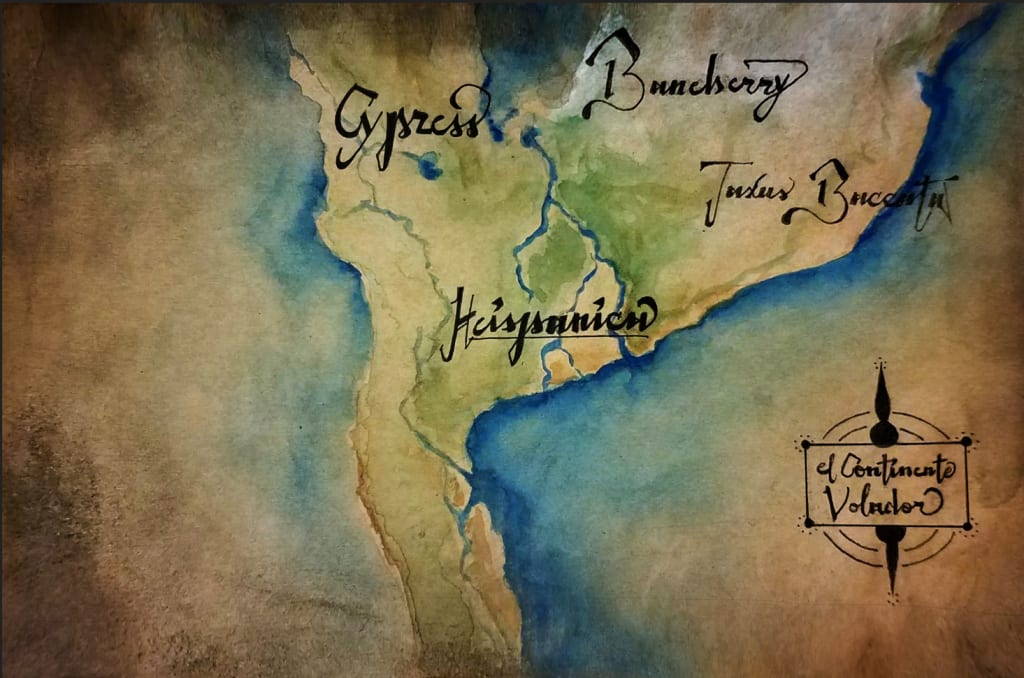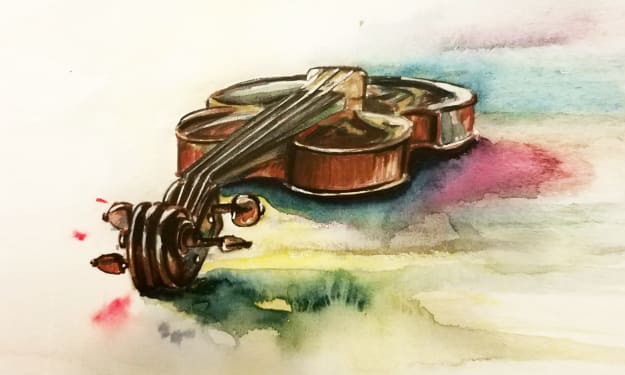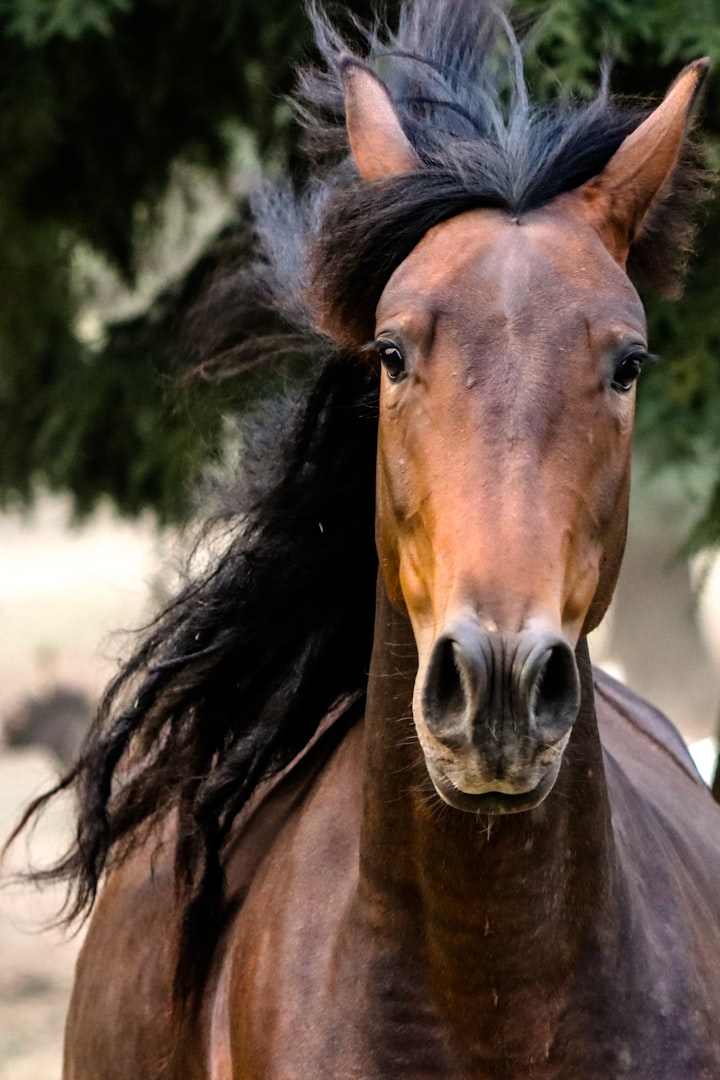Dandelions For Dreams
"You're stars, and you glow for us at night, when we can't see where we are going."

I was certain I had fallen in love. There was no other explanation for it—I had never fallen in love before then, but my stomach churned inside out over and over again, and my skin felt like glitter trying to fly into the air, and laughter always got caught up in my throat. My heart felt like a bird who had been held in its nest for far too long. I knew people always believed in love at first sight, but that kind of love never seemed to last, it would eventually die by the time you actually got to know who the person was. Of course, my kind of love was different—I had never seen the man. I didn't even know his name, but his words were stunning, his handwriting was lovely… it scrolled across the page in elegant arabesques. The S's swung like birds in the sky, flying north in the spring. The R's and M's ran like mountains and hills, as they told of reddened sunsets over the treetops in the valleys, reflecting on the rivers, and rolling rocks splashing in their creeks. Even between the spaces, where there were no words or letters, I could read between the lines of endless nights full of gazing at the stars. I imagined mornings walking away from the campfire he'd just smothered with sand, before he wrote of coming home, smelling like smoke and bitter leaves.
The man wrote of being in the Heispainicanai Navy, which I knew some things concerning the topic, as my father had been once when he was younger, but this boy seemed to have such more vivid experienced than the way it sounded in the stories my father told, he must have been in a different kind of fleet. He would write, in intricate descriptions, about the rising sun, after an all-night's work, where the light would color the smoke which rose into the sky a bright pink colour. How the fog in the early hours always reminded him of how much he really couldn't see, regardless of all that was there. He talked about hiking on the edge of the regions, never quite stepping across the southern Baneberran border—regardless of how close he got. How he would perform volteretas on the edge, where the countries of Cypress and Heispanica met. How he met a native to Cypress, a little boy with white hair, who convinced him that they were nice people, and he crossed the border, without his Naval tropas. He wrote about the food there—I felt like I was having my own experience to the outside world just by reading the notebooks. He listed the various foods, which they had scattered across the table, in all different colors and shapes and patterns, how the serving trays were unlike any he'd ever seen in the entirety of El Continente Volador. How, when he returned, he made his bed with the pillows on top of the covers from then on, as Cypress had such becoming living quarters. After reading about his experience in Cypress I was compelled to make my bed with the pillows on the top just as he described. I closed the notebook and put it inside the old chest again and replaced it under the root of the tree Roble Viejo. I lifted up my skirts, crossing over the river instead of going west to the bridge, if I was to make it home in time for supper. I cut through the southern town and borrowed a loaf of bread from a family I used to know, for my mother. The amai de casai had given me two, wrapped in a pañuelon, and told me to feed my brothers as well.
"Graciane." I thanked her. When I arrived home, I removed my shoes at the door and hung the pañuelon on the cloth rack. I patted my younger sister on the head while she bounced up and down on the lap of my father; who was cheerfully playing games with her. In the way he used to play with me. My mother asked me where I had been. "I was just across the river, madrenai."
"I can see that; your shoes and calcetins are soaked! What were you doing?"
"I was reading a book." I replied.
"Your tonta stories are poisoning your brain I tell you! Giving you ideas of faraway places with faraway people, when the best place for you is here, ahora. Cone nosotrones." I washed my hands and grabbed a knife to help cut the vegetables. "No. Don't cut the patatas, we don't need any more patatas. Cut los pimientons. Yes, the red ones. Graciane." She nodded. "Now, as I was saying. What pleasures could you have elsewhere that bring you away from your mother and father and the rest of your family my dear?"
"Madrenai, do you know what love is?"
"Of course, I know what love is." She put the knife down and looked at me. "I love you and your brothers, and your sister, and your father—of course I know what love is." She picked the knife up again, "Love is that thing that gets you to work, and slave, and cook, and clean, and build, and pray, and trabajar pora toda. All day long, and asks for no thanks in return! Love is what causes you to worry sick when your daughter goes off in the woods early in the morning and does not come back until the sun goes to rest! ¡Enfermo te digo! Yes, I know what love is!"
"Oh… Entiendó." I sighed at the thought.
"What are you doing? Are you still helping?"
"Of course, madrenai. Was your love any different when you first met mi padren?"
"Your father?" She laughed, "Of course things were different, but that wasn't love…" She smiled, "That was happiness, which was able to turn into love—Hijai, look at me. Love is something that you'll only ever feel after you go through a lot with someone. When you learn to see beautiful things beyond the outside and beyond all the things they do wrong. Like I see in you." She touched my face, and I adored the moment. "And it's what causes me to worry sick when you go off into the woods and do not come back! Enfermo!" The moment passed. She hit me with her apron. "Si, I know what love is!" My younger brother saw the gesture and grabbed a pañuelon and began smacking my skirt with it.

After dinner, while the children played outside, I went into the bedroom, which I shared with my sister. I drew back the curtains over the window. The window was beside my bed, while my sister slept above me. I gathered the papers I had folded into a leather tela. I used a pen to write my truth; what I felt love was really like. It was like the moon, kissing the ocean on a clear night. Like birds, scrolling across the sky, telling their story in elegant whisps and lines, writing out the words that nobody looks long enough to finish reading. Like the lightning bugs, always there for eachother, with their relámpago shining the brightest when all their world is dark. The blueness of the sky which always comes back after a long rain. Although, love is, at the same time, a dienten león flower; where you give it your wishes, and it blows away from you and you'll never know if it's really kept its promise. Until your sueños come true. I tried writing my S's in the shape of birds, flying through the air, but they only looked like S's. I added little wings to them, and said their mother was still teaching them to soar. Coming into the room, my hermanai pequeño ran to the open window.
"Un dienten león florai!" She crawled over my bed and reached for the little flower, hanging into the room, just asking for a little girl to give it a wish and blow it away.
I stopped her hand, "No, no, niñitai. That's not yours." I told her, she slid off the bed solemnly. I picked the flower and held it in my hands, watching the clouds quickly flow by. I thought for a moment, then I closed my eyes and made my wish. …That the one I have fallen in love with would come to me. I blew the flower and watched the fluffy ball deteriorate, as its seeds were carried out the window and into the wind. Where they'd land near the beach and be kicked under the sand where some would turn brown, curdled, and die, and some would be shoved into the dirt and kicked into the sea before they died. Probably never to be seen or heard of again, I thought. I felt a sense of sadness, of loss and regret, come over me. "Come on." I said to my litter sister. "Let's go find you another dandelion." We never did find another one, but we caught lightning bugs and put them in a glass frasca. Then we layed in the grass, as she told the little bugs that they were stars.
"You're stars." She repeated, just so they would hear and not forget. "And you are light for all the personas in the world, and you glow for us at night, when we can't see where we are going." She put her face up to the jar and glared in at them as she said this, and I thought, that must be what love is. I still wondered where my wish had gone.
The next morning, I crossed the river, over the bridge this time. I said "Buenos Dais" to the wind as the man had said he did in his journals. For he knew from not whence it came, yet it still came to him without fail, as he wrote. He was twenty añons, barely older than I was. He was son to a well-off family. This I knew my father would approve of, for he never knew or cared what love was. The stranger wrote of his wish for love in his journals. I had already read three of them, and I wished I could just tell him that I was here. That it was a man just like him that I wanted to marry. The reality was, I needed to marry soon, for I was getting older every day. How I wanted him to take me with him to Cypress, or across the sea to the Frainerish Isles. I wanted to learn the languages he had learned on his journeys. I wanted to hear his voice as he told me the stories, not just in his gorgeous writing. "But what is a wish?" As my father always said. What is a wish? The only place they ever take you are sadness, because your dreams don't reap you progress. I wanted to cook him the best Heispanicanai meals over a fire. I would buy and sell and trade to get recipes from Cypress and Castanea and Hura Crepitans, to make dishes fit for a king, if I could only marry a man who knew how to love.
I read of a story he wrote, where he was staying on a farm his uncles had built in the east. They kept lots of animals in the fields, like vacai and caballois with manes that were braided to the ground. There was a big, ugly cerdan in the pigpen, that his uncle kept for the special occasion. He described the process of skinning and dressing the pigs, but I couldn't read it fully. His descriptions were vivid. It wasn’t a good thing when it came to destroying the flesh of a living creature. I skipped a few pages, where he wrote of doing many manly, dirty things on the granja, and instead read the excerpts that made my heart yearn. He wrote how he felt so out of place. How his dreams were too broad and too climactic for the flat prairie he grew up on. How, while his family and friends neither declined, nor forbade the consept of his dreams—save the particularly deadly ones—they still didn't seem to understand what he was after. His desire was never to leave his people, but he longed to go out. He wanted someone, to not just let him do as he wished, but for someone to bless the journey he wanted to take—or better, for someone with the same desire, to go out with him, and bring all the things from other territories and other places which were good, and pleasing, and did the hearts of his people well. He wanted to be different than every other niñon, every other hombren in his country, but not in a bad way. He wanted someone to be with him as he crossed the rivers of the west. He wrote that he wanted someone to dive with him into the cliffs of the ocean, someone to come up to the surface breathing again. Whether it was to be a best friend, or a wife, he wanted someone to sing the native Youkat'n songs by the fire on the faraway coasts of el Continente Decordo, while he played the flautan de pan and el tres, to remind them of their beautiful home amidst the rest of the open world. Someone who would help him pronounce the words of the Frainerish languages, as they'd live there in a holiday home in the capital of Quercus. I looked beyond the pine trees over the river and saw the prairie that we lived on with our little house out in the open, rocking with the winds like the grass did. A dream very similar rolled in my heart. I'd love to see what the oceans looked like on he east side of el Continente Decordo. Or to go on a boat in the Alarian sea, with a man with such a dream. I knew then, that we were meant to be—it couldn't have been more perfect, that was when I decided I was absolutely certain I was in love. Of course, I could see how he loved to write, I looked through the box of papers and notebooks and spare pens, and thousands and thousands of words. If we were to meet, and to marry, we could travel the world and find all the perfect things scattered throughout lands and write letters to home. While we were in Heispanica we could write to the friends we will have made in other countries. I scolded myself for the thought, though, for I had never met him in person, regardless of how I felt I knew him. I knew I'd probably never meet him anyway, let alone wed. At this thought, I closed the box and walked home. I figured I could help launder the clothes or boil water for the rice. Rice made me think of the rice swamp the town farmer would grow, where weeds and flowers would grow. I thought of the dandelion I wished on the night before, and wondered if wishes ever really come true. I planned to ask my mother what she wished of, when she was young. I figured I could ask my father, but I was told that he never really had any dreams as a kid. His parents had him hunting gallo his whole life, I knew that. When you force a boy to be a man it gives them no means for imagination, and that's what had happened to all the old men in the territory. Madrenai let my little brother be a boy, though, and I was glad for that. I walked in the door and hung my hat on the cloth rack. I didn't bother to remove my shoes.
"Madrenai!" I called, she came into the dining room and seemed happy to see me, "Would you like me to fetch water to boil?"
"No! no! I want you to help me clean." She did a small dance, laughing, "There is a man, Señor Deseas, who is coming to stay with us for a very short time. He grew up on a prairie in the west." She said, "He's currently unemployed, but he was in the navy—I hear he is very strong, mi hijai." She told me. "And he comes from a rather well-off family."
"Is that so?"
"Yes. It is very so. He has no woman, and you need to marry. He wants to meet you, dear."
My heart suddenly thumped in my chest. "Is that so?"
"Yes. It is very so!" She hugged me, and turned, "Ahora, you help me clean." I did so. We changed sheets and blankets on all he beds and prepared the guest room. As I dusted and she swept the floors, I asked her if she ever had dreams growing up.
"Dreams? Dear—why do you ask me all these questions about love and happiness and dreams?"
"Because I wish to understand them." I said. "Did you ever had future goals and wishes? Things you looked forward to, that you'd maybe, maybe get to do someday?"
"I did, dear. We all have goals we set for ourselves. Even your father." She laughed.
"Asi… what were your dreams?"
"I dreamed that I'd marry and raise a family of three boys and two girls on a prairie near a rice farm. And what do you know; my dream came true. That's why if you set reasonable goals, you can be living your dream and fulfil your purpose in the realm of your own wishes."
I thought about Señor Deseas. "I do believe my dreams are becoming more reasonable every day."
"That's a good girl. Go burry that dust rag by the river for good luck. Put one of my white rosais with it so you might find love!" She didn't know I already had, but she also believed that love was something different than I did.

After cleaning, and dusting, and scrubbing, and polishing the old wood furniture, the house was finally "Aceptablen." as my mother said. Then she said, "Now go do the same to yourself, you granuja." So, I went and washed my hands and face and brushed my teeth and brushed my hair. I changed into a red and yellow dress Madrenai had sewn for me for special occasions. The house bustled, and the boys came in and destroyed all the cleaning we had attempted. My eldest brother came home from his work and his muddy boots made footprints across the floor and on the bead rug, before he took them off and tossed them by the other shoes where the mud splattered on the wall and over the washcloths and towels and shawls on the cloth rack. This was after the rain stared pouring, when the two youngest went outside to play. My mother's thought was, when giving them permission to do so, that they'd be less of a disturbance to the house. That thought quickly passed when they came inside to get their toys to use outside, getting all of the coats wet with water, and dripping puddles all over the floor. They also climbed over and under the divan in the livingroom, soaking that as well. They touched the plates and countertops with their wet, dirty, grass-covered fingers trying to grab bread rolls Madrenai was making. We had to re-wash all the dishes. In the chaos, my mother forgot the clothes we'd washed which were hanging to dry outside, so they were soaked from rain, and the children made a game of throwing mud-balls at Padren's clothing, obviously splattering on most of the others as well. Padren attempted to speak to me about something in particular, but all he was able to say was,
"Mi hijai, todons lon hombrens son cerdons... And I just want you to know, the most important thing—" Before the chaos of the house erupted. My siblings were in such trouble and my mother almost committed suicide. At the end of the day, the señor still arrived. He seemed very happy, also, to enter such a lively home. Thankfully we had gotten the children cleaned up, for the most part, and changed. When he arrived, my father went out into the rain and mounted the señor's Yeguai, and found him a seat that was not either wet or muddy. My mother introduced the family.
"This is my eldest," She introduced my brother, "And my eldest daughter."
I shook the man's hand. "Much'no guston, Señorita." He kissed my hand,
"Igualmente." I said. "What might I call you?"
"Jeremias." He said, "is my name. And your's, bonitai?"
"Soña."
"Soña," He smiled, his face was very appealing his eyes were bright and lively. I was excited to discover if this was the man I had fallen in love with. Butterflies were flying around in my stomach. His demeanor seemed like his writing, his S's would fly off freely into the sky, like birds. "You must be a dreamer."
"Graciane, señor."
"And this is my second-youngest son, and my younger daughter, and the youngest little boy." My mother finished. My father sat with us in the living room while the younger children played outside and Madrenai finished cooking dinner. I was eager to ask him about the letters in the woods.
"So, you were in the Navy?"
"Yes. I was." He said, "I was retired two years ago. And I worked in the rice farms out west."
"And you grew up on a prairie?" I pressed.
"Yes. I was so eager to get out of there though. I hope I will be able to find the woman of my dreams some day, and move to the mountains—or travel to the coast." It was him. I couldn't keep from bursting out laughing.
"I assume you'd like to travel in the future then?"
"Oh, yes!" He said, "You have a lovely home, the area is quite different than the west. I've never been on this side of Heispanica, so it's quite a new experience." He explained.
My heart stopped, "You've never been here before?" I asked, not able to keep the strain out of my voice. Jeremias shook his head, "You never left your notebooks here before?" My father looked at me quizzically.
"Notas? Never!" he smiled, "I'm not much of a writer." He continued, as to ease my growing disappointment, "I'm more physical. The last time I wrote anything was a letter to mi familian, and that was of no choice." He explained honestly, and cheerfully. His nose was very crooked, I almost wished I could reach over and straighten it out for him.
"Have you… ever… been to Cypress?" I asked, unenthusiastically, as my hope drained away. I shook my head as I began to resent that selfish, lying, egañosan dandelion.
"Cypress?" he thought for a moment, "Maybe once, with my tropas, but only for a very short time." He said, "I don't think we met any natives, or saw any establishments, or pueblos." The hope drained from my heart. I supposed I was to be mature now, for love must not have been what I thought. The man I really did love probably had a wife by now anyway. He was too good of a man to have no love to take him away with his dreams. I endured the last of Señor Jeremias Deseas' stay unenthusiastically. Politely, answering every question he had for me, and even more politely walked with him out the door when he left.
"What did you think of the hombren?" My father asked me in la sala, after Señor Deseas was no more.
"At first," I smiled, imagining the man probably singing Youkat'n hynms with his wife on the beach of el Continente Decordo, playing el tres in the wind and under the stars. "I had thought it was a dream come true. I had so many wishes." I looked at him, "And now I'm realizing my dreams were just pointless." I said.
"You know." He looked at me empathetically. "I used to be a dreamer. I had big—grande—plans for my future when I was young, and I did have many a disappointment, but I'm happy now that I've gotten over it."
"What kind of dreams did you have?"
"I wanted to travel the world." He told me honestly, "I wanted to gather together all the little, perfect things from all the world, and bring them back in one place. I eventually realized that that's the job of an army, not one man. I wanted to sit on the sand on the coast of another country, and play my instruments while my one true love and I would sing songs from home, while we collected our little things. I wanted to be different than every other niñon in the entire country. Get out of the same old, same old, you know?" He sighed, "I wanted to build a house in Quercus, and learn all of the Frainerish languages."
"You?" I stared at him in awe.
"Yes, mi hijai. I understand your dolor. I really do. Its is discouraging to have to give up your dreams. In my youth, I finally had to decide to give up on mine. I gathered all of my notebooks, and papers, and letters on which I'd written my dreams, put them in a box—about trece years ago now—and buried them, never to see them again. And I never left this prairie. I found my place, and learned to be happy where I was." He told me.
I buried my face in my hands and said to myself, "I'll never love again." I'll never love again.
I'll never love again.
About the Creator
Langley Häftling
Wenn Vertrauen bedeutet, die eigene Freiheit aufzugeben, bedeutet Misstrauen, ein Diener Ihrer eigenen Unsicherheit zu sein.
Ich werde kein Gefangener zu dieser Welt sein.






Comments
There are no comments for this story
Be the first to respond and start the conversation.